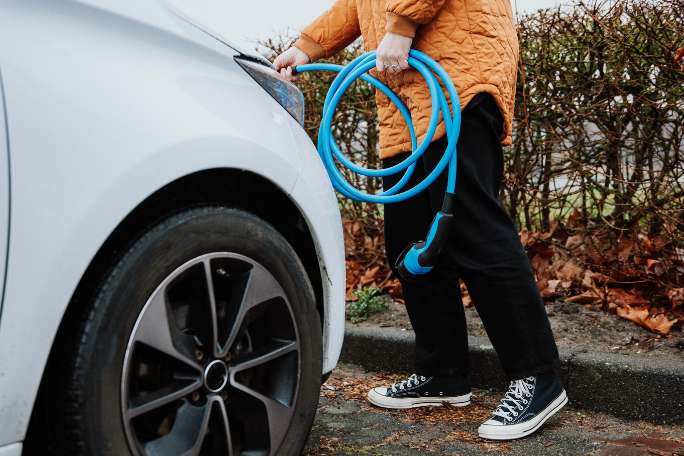Lesson summary
Students consider some of the challenges associated with electric cars and debate whether they can truly help reduce carbon emissions from transportation.
Learning intentions:
Students will...
- demonstrate ways in which net-zero carbon emissions can be reached by 2050.
Success criteria:
Students can...
- compile and consider evidence in support of electric cars helping to reduce carbon emissions from transportation.
- compile and consider evidence in opposition to electric cars helping to reduce carbon emissions from transportation.
- write persuasively on whether electric cars can form part of the solution to working towards net-zero carbon emissions by 2050.
Lesson guides and printables
Lesson details
Curriculum mapping
Australian Curriculum content descriptions:
Year 6 English:
- Use comprehension strategies to interpret and analyse information and ideas, comparing content from a variety of textual sources including media and digital texts (ACELY1713)
Relevant parts of the Year 6 English achievement standards: Students show how specific details can be used to support a point of view.
Year 7 English:
- Use comprehension strategies to interpret, analyse and synthesise ideas and information, critiquing ideas and issues from a variety of textual sources (ACELY1723)
Relevant parts of the Year 7 English achievement standards: Students understand how to draw on personal knowledge, textual analysis and other sources to express or challenge a point of view.
Syllabus Outcomes: EN3-3A, EN4-2A.
General capabilities: Literacy, Critical and Creative Thinking.
Cross-curriculum priority: Sustainability.
This lesson is part of the wider unit of work IPCC Climate Change Solutions.
Level of teacher scaffolding: Medium – Discuss the IPCC report with students, guide their thinking on the electric car debate, and support them in independent work.
Resources Required
- A device capable of presenting a video to the class
- Individual devices capable of accessing the internet – one per student
- Presentation Slides (optional)
- Student Worksheets – one copy per student (optional)
- Student writing materials
- Whiteboard
Skills
This lesson is designed to build students’ competencies in the following skills:
- Communication
- Critical thinking
- Digital literacy
Additional info
Cool would like to thank the Lord Mayor’s Charitable Foundation and The Vincent Fairfax Family Foundation for generously supporting the development of these lessons.


Welcome back!
Don't have an account yet?
Log in with:
By signing up to Cool.org you consent and agree to Cool's privacy policy to
store, manage and process your personal information. To read more, please see
our privacy policy here(Opens in new tab).
Create your free Cool.org account.
Many of our resources are free, with an option to upgrade to Cool+ for premium content.
Already have an account?
Sign up with:
By signing up to Cool.org you consent and agree to Cool's privacy policy to
store, manage and process your personal information. To read more, please see
our privacy policy here(Opens in new tab).